
- Home
- India
- World
- Premium
- THE FEDERAL SPECIAL
- Analysis
- States
- Perspective
- Videos
- Sports
- Education
- Entertainment
- Elections
- Features
- Health
- Business
- Series
- In memoriam: Sheikh Mujibur Rahman
- Bishnoi's Men
- NEET TANGLE
- Economy Series
- Earth Day
- Kashmir’s Frozen Turbulence
- India@75
- The legend of Ramjanmabhoomi
- Liberalisation@30
- How to tame a dragon
- Celebrating biodiversity
- Farm Matters
- 50 days of solitude
- Bringing Migrants Home
- Budget 2020
- Jharkhand Votes
- The Federal Investigates
- The Federal Impact
- Vanishing Sand
- Gandhi @ 150
- Andhra Today
- Field report
- Operation Gulmarg
- Pandemic @1 Mn in India
- The Federal Year-End
- The Zero Year
- Science
- Brand studio
- Newsletter
- Elections 2024
- Events
- Home
- IndiaIndia
- World
- Analysis
- StatesStates
- PerspectivePerspective
- VideosVideos
- Sports
- Education
- Entertainment
- ElectionsElections
- Features
- Health
- BusinessBusiness
- Premium
- Loading...
Premium - Events
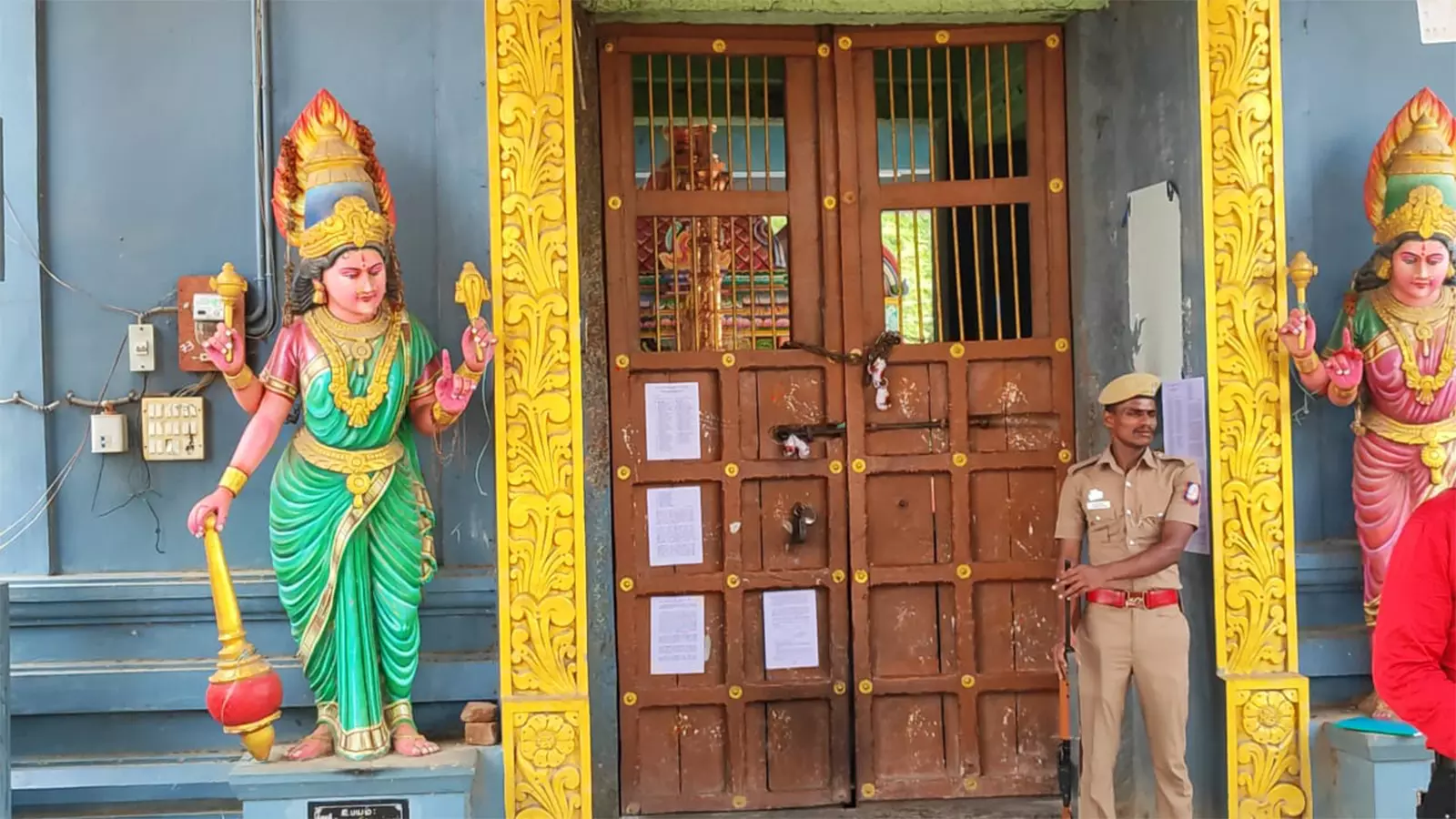
In January 2023, a 30-year-old Dalit, Subramani Muthuvel, bravely entered the government-owned Sri Muthu Mariamman Temple in Thenmudiyanur village of Tamil Nadu’s Tiruvannamalai district. Accompanying him were nearly 300 other people. In doing so, Muthuvel challenged an 80-year-old system perpetuated by caste Hindus, who prohibited the entry of Dalit in temples declaring them...
In January 2023, a 30-year-old Dalit, Subramani Muthuvel, bravely entered the government-owned Sri Muthu Mariamman Temple in Thenmudiyanur village of Tamil Nadu’s Tiruvannamalai district. Accompanying him were nearly 300 other people. In doing so, Muthuvel challenged an 80-year-old system perpetuated by caste Hindus, who prohibited the entry of Dalit in temples declaring them as untouchables.
The Muthu Mariyamman Temple comes under the Hindu Religious and Charitable Endowment Board (HR&CE). Representatives from the community first sought permission from the village head and after being turned down approached HR&CE which ensured the Dalits equal access to the temple.
The Dalit community of the village drew praise for their courage from several quarters back then. But a year down the line, they feel their effort have failed to bring any change on the ground.
“The temple entry initiative, which should have promoted unity of minds and social harmony in the village, has not diminished caste discrimination but intensified it rather,” Muthuvel told The Federal.
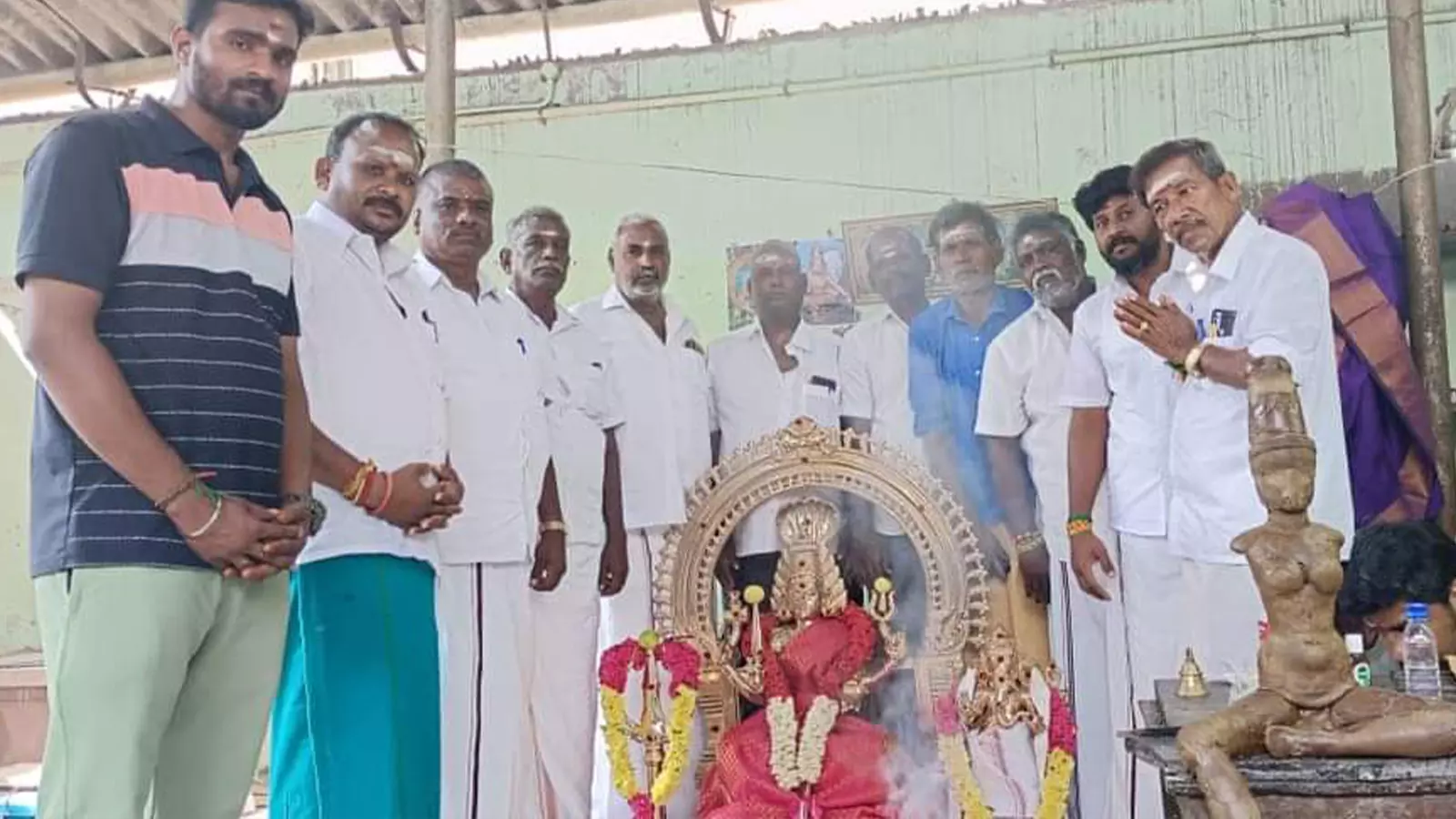
Caste Hindus in Thenmudiyanur village worshipping the new idol. Photo: On arrangement
“Caste Hindus have abandoned the temple. They have instead placed a new idol in a separate place and offer prayers there. They told us that our entry has polluted the temple and so caste Hindus would not visit the temple anymore,” he said.
In early February, caste Hindus organised Pongal festivities for the new idol at the new site abandoning the old temple.
Over the last three years of the DMK government, Dalits like Subramani Muthuvel in various parts of Tamil Nadu have entered government-owned temples seeking equal right to access. But this access has failed to translate into the desired social harmony, equality and justice.
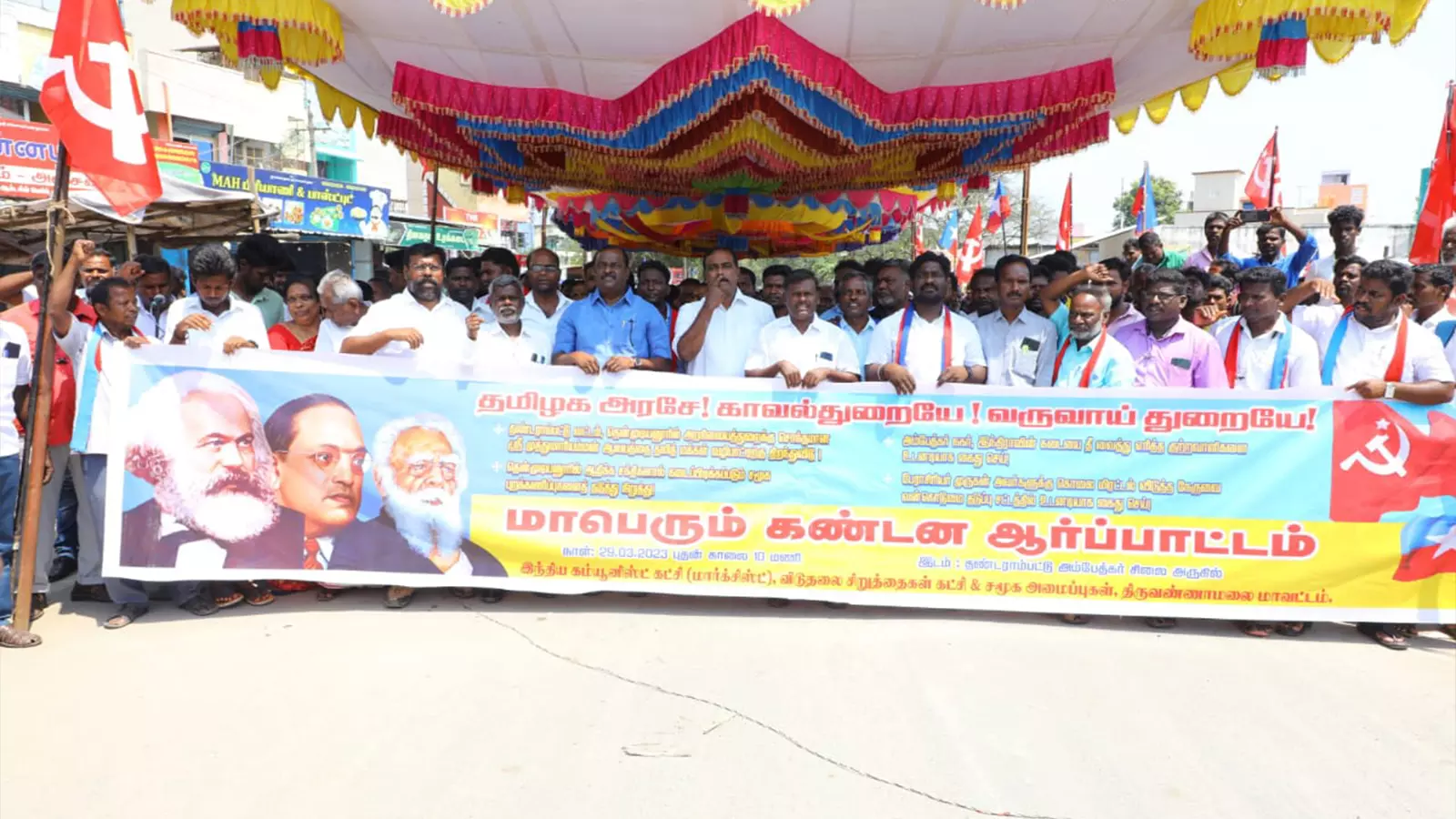
A protest demanding Dalit entry in Sri Muthu Mariamman Temple. Photo: Subramani Muthuvel
The Federal spoke to Dalits in various villages where members of the community entered temples after government intervention to understand the impact of the move. Almost all shared similar sentiments saying the step has not helped much in bridging the social divide. The divide has existed in the state for over a century.
Temple entry and old caste fissures
Historical records indicate that temple entry protests in India originated during the freedom struggle. Analysts suggest that the rights to worship in temples were established during the monarchy period when temples were being constructed at a rapid pace under royal patronage.
In his book on deities and social traditions, late anthropologist T Paramasivan mentions, “Caste-based discrimination and untouchability are by-products of land ownership, and had become more prevalent as early as the 10th century. It is evident from the Chola period inscriptions.”
So, although the history of temple entry protests goes back a hundred years, it is evident that untouchability in temples has been around for centuries.
In 1927, Justice Party member JS Kannapar was stopped when he tried to enter the Tiruvannamalai Annamalaiyar Temple with Dalits. The case has been going on for a year. The case was fought in court and the verdict vindicated Kannapar. The court imposed a fine Rs 100 on the two temple gurus and ordered a compensation of Rs 100 for Kannapar.
Subsequently, in April 1928, Kannapar and Dalit people entered the Tiruvannamalai Temple.
Similarly, in 1929 in Erode district, Dalits launched a struggle to enter the Eswaran Temple.
Media reports from 1932 delineate how Dalit people entered temples as part of the Self Respect Movement despite the protests in many temples including the Mylapore Kapaleeswarar Temple.
“In July 8 1939, on the directions of Mahatma Gandhi, members of the Tamil Nadu Harijana Seva Sangh, including five Dalits and one person from other backward caste, entered the Meenakshi Amman Temple in Madurai. And after much controversy, all castes were allowed in the temple,” researcher and author C Lakshmanan told The Federal.
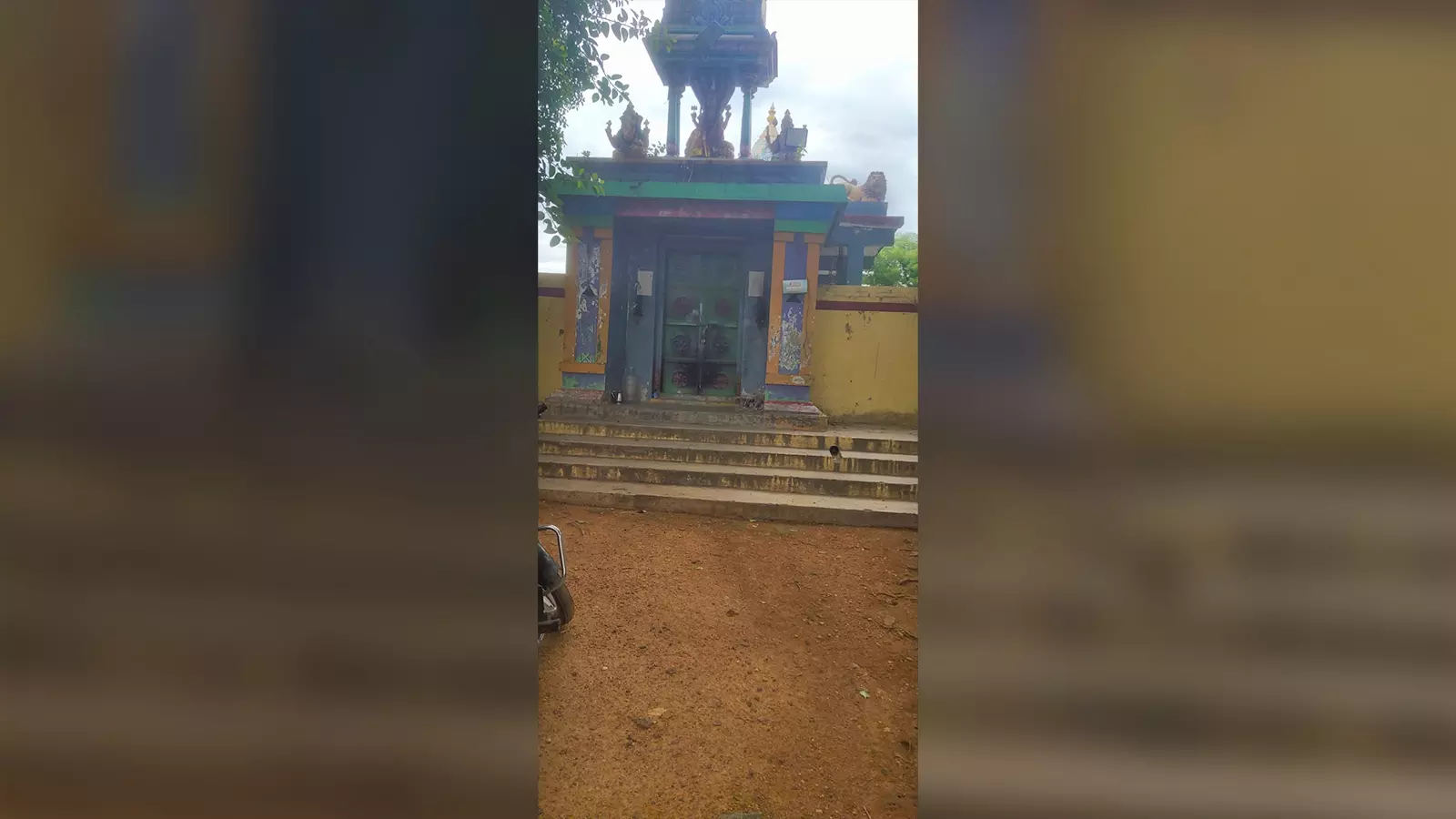
The Sri Muthu Mariamman Temple in Thenmudiyanur village.
Subsequently, after several debates, the Madras Provincial Temple Entry Bill was passed on July 11, 1939. As a result, the Tamil Nadu Temple Entry Act was brought in 1947. The act was intended to give Dalits and other prohibited Hindus full and complete rights to enter Hindu temples.
Lakshmanan says that Mahatma Gandhi gave great importance to temple entry protests in India and Ambedkar and Periyar also paid serious attention to the issue.
“It was Gandhi who started the temple entry protests as part of the freedom struggle. Through Gandhi, Ambedkar and Periyar, the idea that all castes have the right to worship in temples was reinforced in the society. Therefore, the temple entry protest in Tamil Nadu made a big difference during the freedom struggle. As a result, there is no caste discrimination in thousands of temples in Tamil Nadu today,” he said.
In addition, when the DMK, known to stand for atheism, came to power, they gave importance to the private sector such as the charity department in matters concerning temples. If there were any disputes regarding temple entry, they were gradually resolved.
“Currently, temple entry issues are more prevalent in villages. The cities are mostly free from the problem. The problem persists in the temples where both caste and scheduled communities live in the same neighbourhood and they have legal right to worship,” says Lakshmanan.
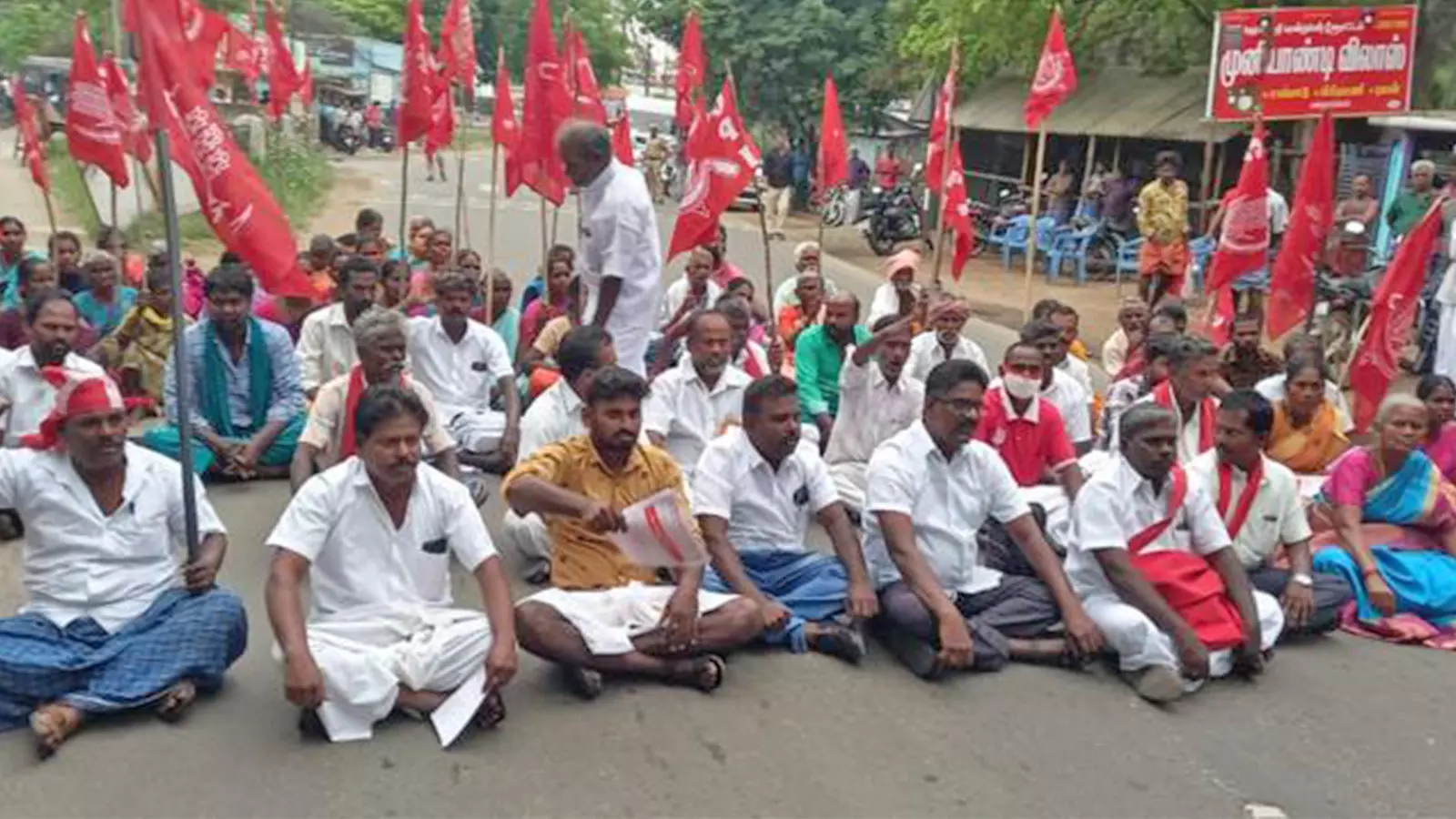
Members of CPI during a protest discrimination against Dalits.
The Federal also verified that there is no discrimination of entry based on caste in Tiruvannamalai Temple, Madurai Meenakshi Amman Temple and Erode Iswaran Temple. But discrimination is prevalent in rural temples.
Place: Thenmudiyanur village, Tiruvannamalai
Year of entry of Dalits into the temple: January 2023
Incident: Dalits entered the Sri Muthu Mariamman Temple with police protection and district administration officials amidst protest by caste Hindus in front of the temple.
Current situation: Caste Hindus have abandoned the temple and placed a new idol at some distance away from the old temple. They want to build a new temple for themselves at the site. Dalits also allege they are not given jobs in farmlands of caste Hindus.
The contest has spread from the temple to farm fields and livelihood opportunities.
Subramani Muthuvel of Themudiyanur village has approached the district administration alleging caste Hindus have refused to provide work to Dalits on their farmlands. “Many Dalits are educated and improved their standard of living on par with other communities, but caste Hindus discriminate against Dalits and do not accept them as equals. Educated youth from Dalit communities want to move from village unable to bear the discrimination,” he told The Federal.
Place: Kavalapatti village, Dindugal
Year of entry of Dalits into temple: May 2022
Incident: Dominant castes objected to Dalits entering the Uchikaliamman temple. Dalits, on their part, entered the temple in the presence of police and district administration authorities.
Current situation: Both caste Hindus and Dalits now worship at the same temple, but on separate days. Each group has been provided with their own set of keys, and two priests have been designated to conduct prayers accordingly.
Social activist Manikandan of Kavalapatti village mentioned that the discrimination became accepted practice after two days were allotted for each group to offer prayers in the temple. “Instead of uniting the people, the present arrangement has intensified the differences between them. This would actually divide them. Peace meetings are being conducted now. But I am not sure how this would help them,” he said.
Place: Sri Dharmaraja Draupadi Amman temple, Melpathi, Villupuram
Year of entry of Dalits into the temple: April 2023
Incident: After the entry of Dalits into the temple, caste Hindus protested.
Current situation: The district administration has sealed the temple since June 2023 as peace talks failed and the dispute over entry of Dalits created tension in the village.
Priya of Melpathi village, who is a caste Hindu, says the sight of the closed temple disturbs her. “I have Dalit friends and I support their entry. But both communities should come together and resolve their differences. The temple should be kept open for prayers. The differences have forced locks on temple doors.”
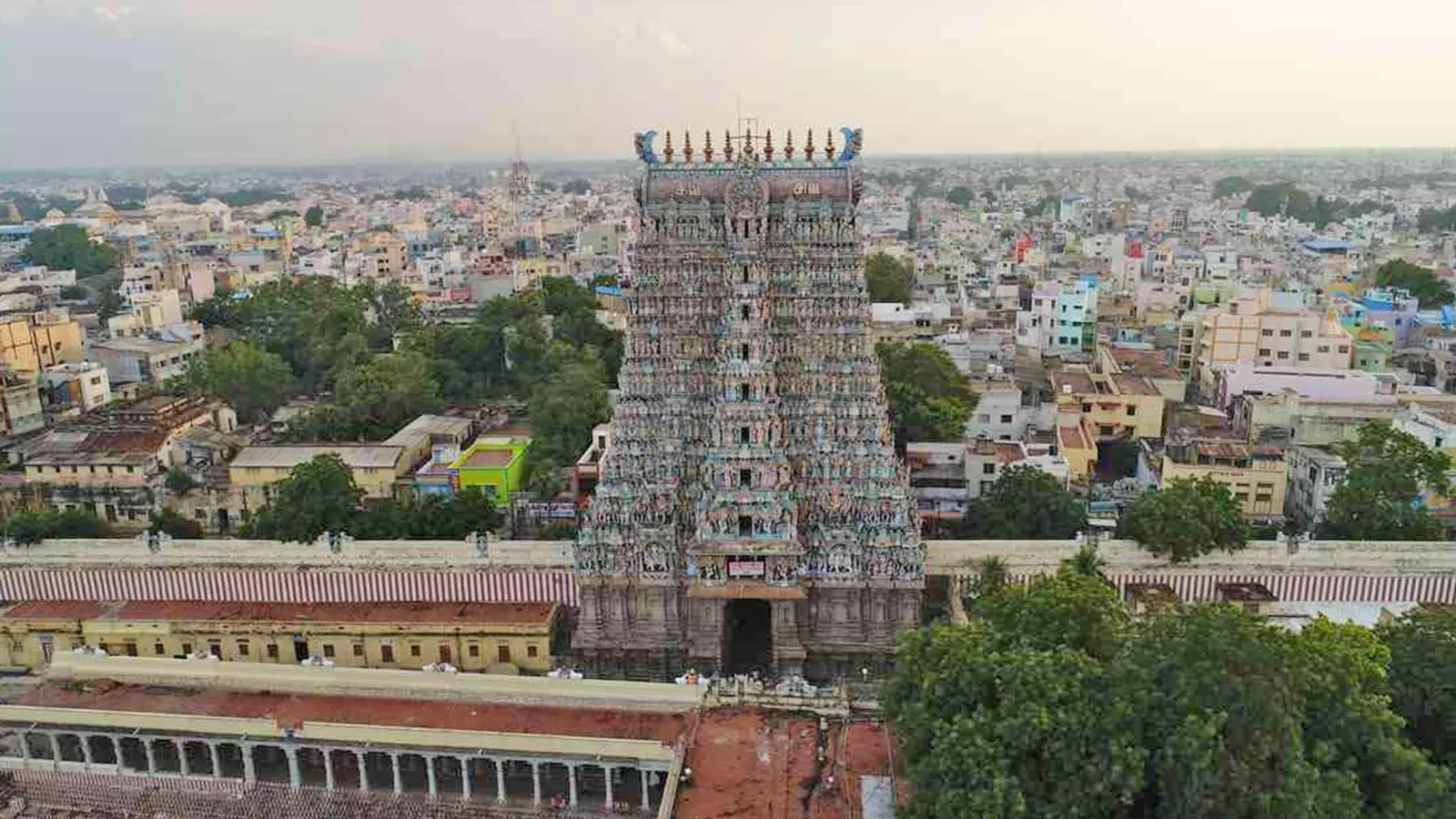
The Meenakshi Amman Temple in Madurai.
Asked why attempts for egalitarian temple access remain unsolved even after government intervention, HRCE minister Sekar Babu said, “Social change will take place gradually and immediate results should not be expected in sensitive issues.”
Reacting on the practice of caste Hindus abandoning temples which the government is opening for Dalits, he said, “Wherever entry of Dalits is prevented in the name of caste discrimination, we ensure strict action is taken. We make sure Dalits enter the temple and offer prayers like any other person from the upper caste. Untouchability is banned and can’t be tolerated. When a group of caste Hindus build a new temple for themselves in their own private land citing personal reasons, we cannot stop them. Since they get approval for building a private temple through legal process, it cannot be stopped. Moreover, social change has to happen in the mindset of the people for which we are taking steps,” he said.

